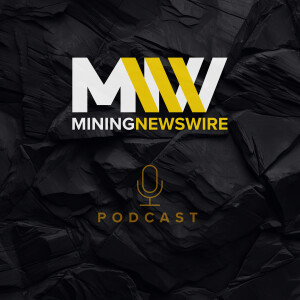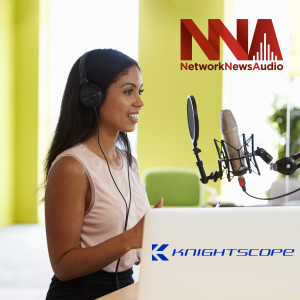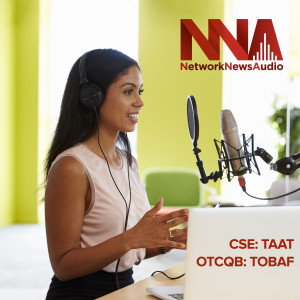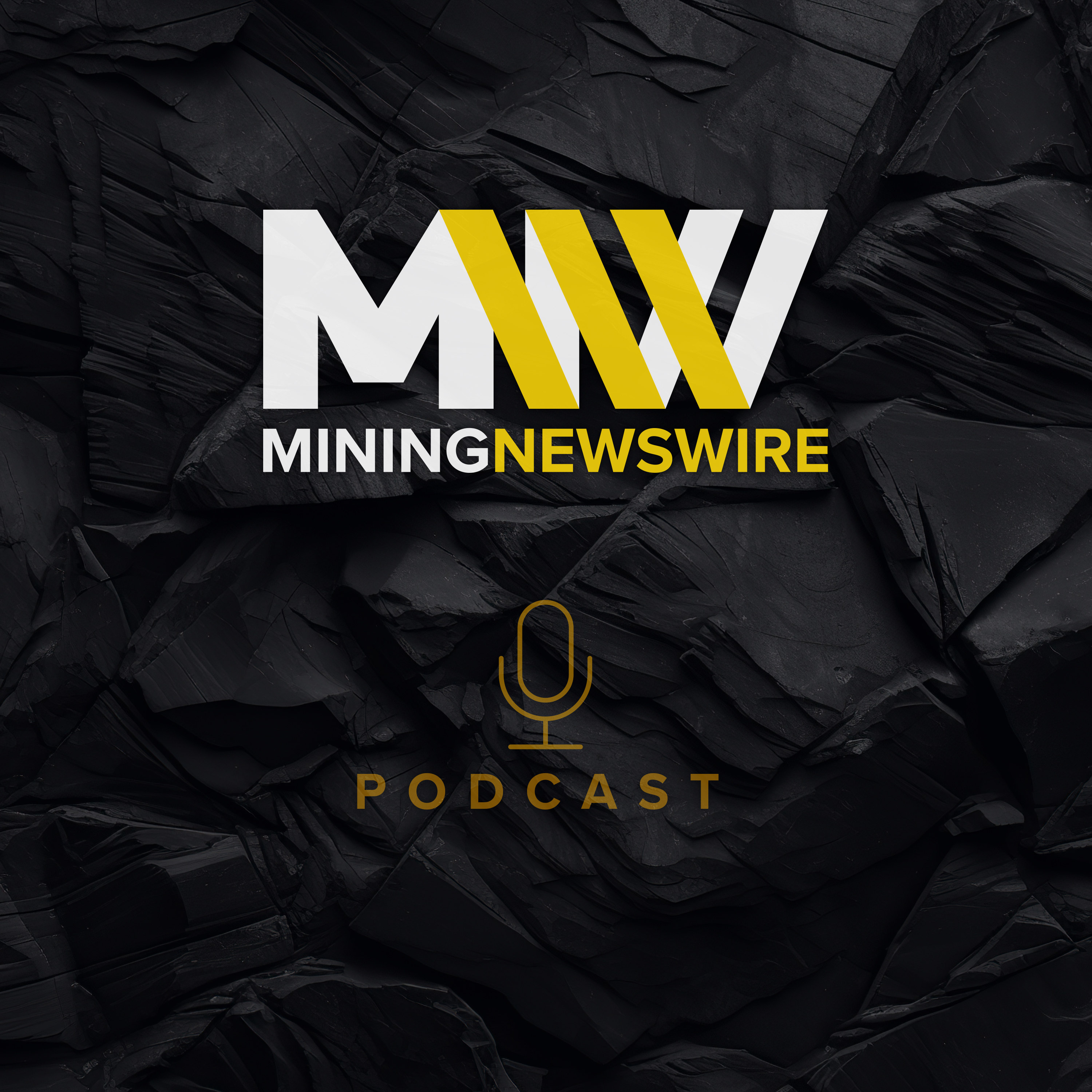Episodes
![Energy Fuels Inc. (NYSE American: UUUU) (TSX: EFR) Strives to Return REE Production to United States as Demand Grows [Video Edition]](https://pbcdn1.podbean.com/imglogo/ep-logo/pbblog8013814/UUUU_300x300.jpg)
Thursday Mar 18, 2021
Thursday Mar 18, 2021
Indispensable for production of cell phones, wind turbines and electric vehicles, rare earth elements ("REEs") have rocketed in importance as demand for electronics and EVs continue to surge. In addition, rare earths play an essential role in national security and commercial applications. For cell phones to vibrate or EV motors to provide power, they need powerful magnets, and REEs are critical to the manufacture of these powerful permanent magnets. However, serious supply chain concerns have arisen with REEs, because China has a stranglehold on global supply. This is of particular concern due to the need for REEs by the military. The typical F-35 fighter contains nearly 1,000 pounds of rare earths. The United States used to be a large producer of REEs, but Chinese REE producers gradually drove U.S. mines out of business; China now controls more than 80% of world production and dominates nearly every stage of the global REE supply chain. Reliance on China jeopardizes U.S. national security, and growing demand has EV makers on edge. Initiatives are underway to rectify the imbalance, and Energy Fuels Inc. (NYSE American: UUUU) (TSX: EFR) (Profile) is leading the effort to tilt the balance back to American shores. UUUU just announced a new rare earth production initiative spanning European and North American critical material supply chains. Already the country’s largest producer of uranium and a leading producer of vanadium (both designated as critical minerals), Energy Fuels has all the necessary technical know-how, licenses, production facilities, production capacity and resources to bring REEs production back to the United States. And this is all happening in 2021, while other initiatives are years away. Energy Fuels’ initiative will produce value-added rare earth products from natural monazite sands, a low-cost byproduct of heavy mineral sand operations that mainly produce zircon and titanium. There are heavy mineral sand operations in the United States, Australia, Africa and elsewhere, and they are all selling their monazite sands into China’s rare earth industry. This new non-Chinese supply chain can’t happen soon enough for automakers, which are rapidly turning to all-electric vehicle production. The world’s most recognized EV company, Tesla Inc. (NASDAQ: TSLA), has shifted to a magnetic motor using neodymium in its Model 3 Long Range car, which adds to pressure on already strained supplies of a rare earth metals. General Motors Company (NYSE: GM) plans to end production of its fossil-fuel-powered vehicles and exclusively offer electric vehicles by 2035. Ford (NYSE: F) has pledged that all its cars sold in Europe will be electric by 2030 and is adding more EVs to its U.S. lineup. On a similar electric-powered path, Honda Motor Company Ltd. (NYSE: HMC) intends to electrify two-thirds of global automobile unit sales in 2030 and is planning a global electric vehicle platform for larger EVs across select global markets. These automakers represent just the tip of the iceberg for the coming demand for REEs.

Thursday Mar 18, 2021
Thursday Mar 18, 2021
Indispensable for production of cell phones, wind turbines and electric vehicles, rare earth elements ("REEs") have rocketed in importance as demand for electronics and EVs continue to surge. In addition, rare earths play an essential role in national security and commercial applications. For cell phones to vibrate or EV motors to provide power, they need powerful magnets, and REEs are critical to the manufacture of these powerful permanent magnets. However, serious supply chain concerns have arisen with REEs, because China has a stranglehold on global supply. This is of particular concern due to the need for REEs by the military. The typical F-35 fighter contains nearly 1,000 pounds of rare earths. The United States used to be a large producer of REEs, but Chinese REE producers gradually drove U.S. mines out of business; China now controls more than 80% of world production and dominates nearly every stage of the global REE supply chain. Reliance on China jeopardizes U.S. national security, and growing demand has EV makers on edge. Initiatives are underway to rectify the imbalance, and Energy Fuels Inc. (NYSE American: UUUU) (TSX: EFR) (Profile) is leading the effort to tilt the balance back to American shores. UUUU just announced a new rare earth production initiative spanning European and North American critical material supply chains. Already the country’s largest producer of uranium and a leading producer of vanadium (both designated as critical minerals), Energy Fuels has all the necessary technical know-how, licenses, production facilities, production capacity and resources to bring REEs production back to the United States. And this is all happening in 2021, while other initiatives are years away. Energy Fuels’ initiative will produce value-added rare earth products from natural monazite sands, a low-cost byproduct of heavy mineral sand operations that mainly produce zircon and titanium. There are heavy mineral sand operations in the United States, Australia, Africa and elsewhere, and they are all selling their monazite sands into China’s rare earth industry. This new non-Chinese supply chain can’t happen soon enough for automakers, which are rapidly turning to all-electric vehicle production. The world’s most recognized EV company, Tesla Inc. (NASDAQ: TSLA), has shifted to a magnetic motor using neodymium in its Model 3 Long Range car, which adds to pressure on already strained supplies of a rare earth metals. General Motors Company (NYSE: GM) plans to end production of its fossil-fuel-powered vehicles and exclusively offer electric vehicles by 2035. Ford (NYSE: F) has pledged that all its cars sold in Europe will be electric by 2030 and is adding more EVs to its U.S. lineup. On a similar electric-powered path, Honda Motor Company Ltd. (NYSE: HMC) intends to electrify two-thirds of global automobile unit sales in 2030 and is planning a global electric vehicle platform for larger EVs across select global markets. These automakers represent just the tip of the iceberg for the coming demand for REEs.

Thursday Mar 18, 2021
Knightscope, Inc. at the Forefront of Technology-Based Policing
Thursday Mar 18, 2021
Thursday Mar 18, 2021
Police in the United States have used clues and deductive reasoning to fight crime for more than 175 years. However, a sea change is occurring as big data and analytics technology bolster law enforcement efforts in what is known as “predictive policing.” This isn’t futurist precrime science fiction from “The Minority Report.” It’s algorithm-based machine learning/artificial intelligence (ML/AI) software that analyzes trends to give police an upper hand in crime prevention. Police departments worldwide are adopting predictive policing technology in a bid to identify not only perpetrators but victims also. Knightscope Inc. (Profile) and its lineup of autonomous security robots (“ASRs”) are leading the next generation of technology-based policing. The company’s data-collecting robots can use an array of built-in technology to provide police actionable intelligence to make smarter, faster and safer decisions. Seeing the demand, companies such as Axon Enterprise Inc. (NASDAQ: AXON), Palantir Technologies Inc. (NYSE: PLTR), International Business Machines Corporation (NYSE: IBM) and Everbridge Inc. (NASDAQ: EVBG) are also looking to carve out niches as police forces add predictive technologies and big data analytics to their arsenal to protect the public.
![Brain Scientific Inc. (BRSF) Announces FDA Clearance for Next-Gen NeuroCap(TM) EEG Headset [Video Edition]](https://pbcdn1.podbean.com/imglogo/ep-logo/pbblog8013814/BRSF_300x300.jpg)
Friday Mar 12, 2021
Friday Mar 12, 2021
Brain Scientific Inc. (OTCQB: BRSF), a neurology-focused medical device and software company, announced today it received U.S. Food and Drug Administration (FDA) 510(k) clearance for its next generation NeuroCap(TM) device. NeuroCap(TM) is an advanced Electroencephalogram (“EEG”) electrode array used to obtain rapid EEGs in routine clinical and research settings where recording of STAT EEGs is desired.
To view the full press release, visit https://nnw.fm/TgVmq

Friday Mar 12, 2021
Friday Mar 12, 2021
Brain Scientific Inc. (OTCQB: BRSF), a neurology-focused medical device and software company, announced today it received U.S. Food and Drug Administration (FDA) 510(k) clearance for its next generation NeuroCap(TM) device. NeuroCap(TM) is an advanced Electroencephalogram (“EEG”) electrode array used to obtain rapid EEGs in routine clinical and research settings where recording of STAT EEGs is desired.
To view the full press release, visit https://nnw.fm/TgVmq
![Knightscope, Inc. Creating New Paradigm with Noteworthy MaaS Business Model [Video Edition]](https://pbcdn1.podbean.com/imglogo/ep-logo/pbblog8013814/Knight_300x300.jpg)
Thursday Mar 11, 2021
Thursday Mar 11, 2021
The internet boom in the 1990s, with the genesis of application service providers (“ASP”), set the stage for the Software-as-a-Service (“SaaS”) model that now has found its way into nearly every industry. In a SaaS model, providers offer their technology over a set period of time, effectively locking in recurring revenue and a higher profit rather than selling the product outright. Since then, the “as-a-Service” model has been expanded into new verticals in a global economy now eager to accept the process. Because of large margins, Wall Street typically places high valuations on companies that employ the subscription “as-a-Service” model, especially when they have solved a problem and established strong market demand. Already disrupting the $500 billion security industry with its fully autonomous security robots, Knightscope Inc. (Profile) is establishing a new paradigm with its Machine-as-a-Service (“MaaS”) business model. The company already calls the federal government, public institutions and Fortune 1000 companies as clients as it employs a cost-effective subscription structure that is attractive to clients to augment traditional security systems and law enforcement functions. Others using similar business models that performed exceptionally well in 2020 include Axon Enterprise Inc. (NASDAQ: AXON), Intuitive Surgical Inc. (NASDAQ: ISRG), Peloton Interactive Inc. (NASDAQ: PTON) and Roku Inc. (NASDAQ: ROKU).

Thursday Mar 11, 2021
Knightscope, Inc. Creating New Paradigm with Noteworthy MaaS Business Model
Thursday Mar 11, 2021
Thursday Mar 11, 2021
The internet boom in the 1990s, with the genesis of application service providers (“ASP”), set the stage for the Software-as-a-Service (“SaaS”) model that now has found its way into nearly every industry. In a SaaS model, providers offer their technology over a set period of time, effectively locking in recurring revenue and a higher profit rather than selling the product outright. Since then, the “as-a-Service” model has been expanded into new verticals in a global economy now eager to accept the process. Because of large margins, Wall Street typically places high valuations on companies that employ the subscription “as-a-Service” model, especially when they have solved a problem and established strong market demand. Already disrupting the $500 billion security industry with its fully autonomous security robots, Knightscope Inc. (Profile) is establishing a new paradigm with its Machine-as-a-Service (“MaaS”) business model. The company already calls the federal government, public institutions and Fortune 1000 companies as clients as it employs a cost-effective subscription structure that is attractive to clients to augment traditional security systems and law enforcement functions. Others using similar business models that performed exceptionally well in 2020 include Axon Enterprise Inc. (NASDAQ: AXON), Intuitive Surgical Inc. (NASDAQ: ISRG), Peloton Interactive Inc. (NASDAQ: PTON) and Roku Inc. (NASDAQ: ROKU).
![Energy Fuels Inc. (NYSE American: UUUU) (TSX: EFR) Strives to Return REE Production to United States as Demand Grows [Video Edition]](https://pbcdn1.podbean.com/imglogo/ep-logo/pbblog8013814/UUUU_300x300.jpg)
Monday Mar 08, 2021
Monday Mar 08, 2021
Indispensable for production of cell phones, wind turbines and electric vehicles, rare earth elements ("REEs") have rocketed in importance as demand for electronics and EVs continue to surge. In addition, rare earths play an essential role in national security and commercial applications. For cell phones to vibrate or EV motors to provide power, they need powerful magnets, and REEs are critical to the manufacture of these powerful permanent magnets. However, serious supply chain concerns have arisen with REEs, because China has a stranglehold on global supply. This is of particular concern due to the need for REEs by the military. The typical F-35 fighter contains nearly 1,000 pounds of rare earths. The United States used to be a large producer of REEs, but Chinese REE producers gradually drove U.S. mines out of business; China now controls more than 80% of world production and dominates nearly every stage of the global REE supply chain. Reliance on China jeopardizes U.S. national security, and growing demand has EV makers on edge. Initiatives are underway to rectify the imbalance, and Energy Fuels Inc. (NYSE American: UUUU) (TSX: EFR) (Profile) is leading the effort to tilt the balance back to American shores. UUUU just announced a new rare earth production initiative spanning European and North American critical material supply chains. Already the country’s largest producer of uranium and a leading producer of vanadium (both designated as critical minerals), Energy Fuels has all the necessary technical know-how, licenses, production facilities, production capacity and resources to bring REEs production back to the United States. And this is all happening in 2021, while other initiatives are years away. Energy Fuels’ initiative will produce value-added rare earth products from natural monazite sands, a low-cost byproduct of heavy mineral sand operations that mainly produce zircon and titanium. There are heavy mineral sand operations in the United States, Australia, Africa and elsewhere, and they are all selling their monazite sands into China’s rare earth industry. This new non-Chinese supply chain can’t happen soon enough for automakers, which are rapidly turning to all-electric vehicle production. The world’s most recognized EV company, Tesla Inc. (NASDAQ: TSLA), has shifted to a magnetic motor using neodymium in its Model 3 Long Range car, which adds to pressure on already strained supplies of a rare earth metals. General Motors Company (NYSE: GM) plans to end production of its fossil-fuel-powered vehicles and exclusively offer electric vehicles by 2035. Ford (NYSE: F) has pledged that all its cars sold in Europe will be electric by 2030 and is adding more EVs to its U.S. lineup. On a similar electric-powered path, Honda Motor Company Ltd. (NYSE: HMC) intends to electrify two-thirds of global automobile unit sales in 2030 and is planning a global electric vehicle platform for larger EVs across select global markets. These automakers represent just the tip of the iceberg for the coming demand for REEs.
![TAAT Lifestyle & Wellness Ltd. (CSE: TAAT) (OTCQB: TOBAF) Capitalizes on Growing Demand for Smoking Alternatives with Nicotine-Free, Tobacco-Free Cigarette [Video Edition]](https://pbcdn1.podbean.com/imglogo/ep-logo/pbblog8013814/TOBAF_300x300.jpg)
Thursday Feb 25, 2021
Thursday Feb 25, 2021
An estimated 17% of the world, or 1.3 billion people, use tobacco, creating a global tobacco market that approached one trillion dollars in 2020. Given all of the health risks associated with smoking, a significant portion of those tobacco users are looking for other smoking options, alternative that offer a smooth and satisfying tobacco-free and nicotine-free experience that tastes as well as or better than traditional tobacco products. For many, eliminating nicotine is a priority. Addressing this problem head on and carving out a new market niche, TAAT(TM) Lifestyle & Wellness Ltd. (CSE: TAAT) (OTCQB: TOBAF) (Profile) recently launched TAAT, a nicotine-free and tobacco-free cigarette, available in three flavors: Original, Smooth and Menthol. The retail launch included a comprehensive unveil in Ohio, and an e-commerce site went live last week. The company is reshaping the smoking experience by offering a smokable alternative. TAAT is looking to grab significant shelf space alongside the big tobacco oligopoly of Philip Morris International Inc. (NYSE: PM), Altria Group Inc. (NYSE: MO) and British American Tobacco Industries p.l.c. ADR (NYSE: BTI) as well as Chinese vaping giant RLX Technology Inc (NYSE: RLX).

Thursday Feb 25, 2021
Thursday Feb 25, 2021
An estimated 17% of the world, or 1.3 billion people, use tobacco, creating a global tobacco market that approached one trillion dollars in 2020. Given all of the health risks associated with smoking, a significant portion of those tobacco users are looking for other smoking options, alternative that offer a smooth and satisfying tobacco-free and nicotine-free experience that tastes as well as or better than traditional tobacco products. For many, eliminating nicotine is a priority. Addressing this problem head on and carving out a new market niche, TAAT(TM) Lifestyle & Wellness Ltd. (CSE: TAAT) (OTCQB: TOBAF) (Profile) recently launched TAAT, a nicotine-free and tobacco-free cigarette, available in three flavors: Original, Smooth and Menthol. The retail launch included a comprehensive unveil in Ohio, and an e-commerce site went live last week. The company is reshaping the smoking experience by offering a smokable alternative. TAAT is looking to grab significant shelf space alongside the big tobacco oligopoly of Philip Morris International Inc. (NYSE: PM), Altria Group Inc. (NYSE: MO) and British American Tobacco Industries p.l.c. ADR (NYSE: BTI) as well as Chinese vaping giant RLX Technology Inc (NYSE: RLX).
![Amesite Inc.’s (NASDAQ: AMST) Unique Artificial Intelligence Software Products Improve Learning, Empower Educators [Video Edition]](https://pbcdn1.podbean.com/imglogo/ep-logo/pbblog8013814/AMST_300x300.jpg)
Thursday Feb 18, 2021
Thursday Feb 18, 2021
Long before the COVID-19 pandemic, the trend toward digital online learning in both education and business was growing at a steady pace. As the pandemic surged, tens of millions were forced to work from home and college classrooms were shuttered, and the trend turned to a tsunami, leaving many businesses completely unprepared for the new normal. Now both the present and the future of learning and work has moved online, and whole ecosystems must move to e-learning to survive. Demand has surged for customized and scalable online learning products in a single, easy-to-use format. This is the sweet spot for Amesite Inc. (NASDAQ: AMST) (Profile), an award-winning artificial intelligence (“AI”) software company that delivers online learning ecosystems for business, higher education and K-12. Amesite’s product portfolio is complemented by a robust suite of services that help partners implement new programs and improve existing ones. Most recently, Amesite introduced Manage, a creative new functionality that enables schools and businesses to efficiently build and customize new courses, or onboard existing ones, at their own pace. In September, Amesite completed its initial public offering, joining peers such as 2U Inc. (NASDAQ: TWOU), Stride Inc. (NYSE: LRN), Chegg Inc. (NYSE: CHGG) and Pluralsight Inc. (NASDAQ: PS) that strive to improve learning environments with their technology and services.

Thursday Feb 18, 2021
Thursday Feb 18, 2021
Long before the COVID-19 pandemic, the trend toward digital online learning in both education and business was growing at a steady pace. As the pandemic surged, tens of millions were forced to work from home and college classrooms were shuttered, and the trend turned to a tsunami, leaving many businesses completely unprepared for the new normal. Now both the present and the future of learning and work has moved online, and whole ecosystems must move to e-learning to survive. Demand has surged for customized and scalable online learning products in a single, easy-to-use format. This is the sweet spot for Amesite Inc. (NASDAQ: AMST) (Profile), an award-winning artificial intelligence (“AI”) software company that delivers online learning ecosystems for business, higher education and K-12. Amesite’s product portfolio is complemented by a robust suite of services that help partners implement new programs and improve existing ones. Most recently, Amesite introduced Manage, a creative new functionality that enables schools and businesses to efficiently build and customize new courses, or onboard existing ones, at their own pace. In September, Amesite completed its initial public offering, joining peers such as 2U Inc. (NASDAQ: TWOU), Stride Inc. (NYSE: LRN), Chegg Inc. (NYSE: CHGG) and Pluralsight Inc. (NASDAQ: PS) that strive to improve learning environments with their technology and services.

Monday Feb 01, 2021
SRAX Inc. (NASDAQ: SRAX) Transforming the Public Company-Shareholder Dynamic
Monday Feb 01, 2021
Monday Feb 01, 2021
Only three weeks into the new year, and stock trading volumes are “through the roof,” reports a Jan. 22 CNBC article , titled “Trading Volume Is Up from 2020′S Breakneck Pace as Retail Investors Jump In.” The article continues: “It’s not just equity prices that are hitting new highs in 2021. Trading volumes for stocks and options are at records as well. Much of it is being driven by retail investors, who are continuing the high level of engagement that began in 2020.” January volumes are up 92% from last year and up 33% just since December. Evidence points to increased retail trading as the primary impetus in the record-setting increase in volume with much of the real volume increase coming from little-known names in the small cap market. Electronic brokers are hitting new highs as investment markets become more retail driven, and independent investors are making marks in their own portfolios. This new dynamic puts new pressure on public companies to effectively connect with these investors and manage public interaction. But managing the transition to a retail base of investors is easier said than done. Pioneering fintech company SRAX (NASDAQ: SRAX) (SRAX Profile) is changing the dynamic between public companies and shareholders, establishing a new paradigm and perhaps even a new market. Through SRAX’s premier investor intelligence and communications platform, Sequire, companies can track their investors’ behaviors and trends and use those insights to engage both current and potential investors across multiple marketing channels. This provides new untapped arenas for public companies to interact with current and potential future shareholders. Investor interactions and analytics markets have spawned a huge industry. Broadridge Financial Solutions Inc. (NYSE: BR), a $4.5-billion global fintech leader, is a leading provider of investor communications and technology-driven solutions to banks, broker-dealers, asset and wealth managers, and corporate issuers. IHS Markit (NYSE: INFO) delivers next-generation information, analytics and solutions to 80% of the Fortune Global 500 and the world’s leading financial institutions. Some companies such as Genius Brands International Inc. (NASDAQ: GNUS), a global kids media company, and Ideanomics Inc. (NASDAQ: IDEX), which provides disruptive fintech solutions, have both seen exponential growth that likely was impelled by the new dynamic of retail driven markets.

Friday Jan 29, 2021
Friday Jan 29, 2021
A recent Pew Research article pinpointed major concerns with social media platforms. “Americans have complicated feelings about their relationship with big technology companies,” the article observes. “While they have appreciated the impact of technology over recent decades and rely on these companies’ products to communicate, shop and get news, many have also grown critical of the industry.” The article goes on to report that a Pew Research Center survey found that “roughly three-quarters of U.S. adults say it is very (37%) or somewhat (36%) likely that social media sites intentionally censor political viewpoints that they find objectionable. Just 25% believe this is not likely the case.” The events of the last few weeks have made that article appear almost prophetic as issues of censorship and privacy have gained additional prominence on the world stage. A number of private and public companies are working to resolve these issues, with many of those companies relying on blockchain to provide their services. Leading the pack is BIGtoken, the first consumer-managed data marketplace where people can own and earn from their data. The opportunity ahead has such potential that parent company SRAX Inc. (NASDAQ: SRAX) is spinning out BIGtoken into a separate publicly traded company and has entered into a definitive share exchange agreement with Force Protection Video Equipment Corp. (OTC: FPVD). The separation of BIGtoken provides shareholders a pure play in the consumer-managed data sector. SRAX benefits from the potential upside of the BIGtoken platform while reducing operating costs. Social media behemoths such as Facebook Inc. (NASDAQ: FB) and Twitter Inc. (NYSE: TWTR) are under pressure to identify and remove hate-filled communication along with taking added measures to protect consumer data. Blockchain companies such as Riot Blockchain Inc. (NASDAQ: RIOT) could benefit from increased implementation of blockchain technology to protect consumers, safeguard information and ensure data privacy. Everyone’s at risk as revealed by the recent Solarwinds hack, which compromised not just local, state and federal agencies but also major tech companies as well.

Monday Jan 11, 2021
Monday Jan 11, 2021
Ideanomics (NASDAQ: IDEX) has signed a definitive agreement to acquire privately held Wireless Advanced Vehicle Electrification Inc. ("WAVE"). The agreement outlines plans for a 100% acquisition in exchange for cash and stock considerations; full terms of the agreement are contained in the company’s 8-K filing. Based in Salt Lake City, WAVE provides inductive, or wireless, charging solutions for medium and heavy-duty electric vehicles (“EVs”). The fully automated, hands-free WAVE system is embedded in roadways and charges vehicles during scheduled stops; it provides a solution to battery-range limitations, enabling fleets to reach driving ranges comparable to those of internal combustion engines (“ICE”) vehicles. The WAVE technology is proven in the field through multiple customer deployments, and the company’s 2020 unaudited revenues are expected to be in the range of $7 million, with an expanding pipeline looking forward. Roth Capital Partners acted as an advisor to WAVE on the transaction, which is subject to closing conditions. “The acquisition of WAVE is a significant one for our EV efforts across the board,” said Ideanomics CEO Alf Poor in the press release. “We are excited to bring Michael Masquelier and his team into the Ideanomics family, where we can inject significant growth capital to enable WAVE to further accelerate its business and bring wireless charging to our product offerings. WAVE has become a market leader in inductive charging systems, which are much better suited for commercial EVs than plug-in charging systems. WAVE complements our Medici Motor Works and Treeletrik businesses, and our investment in Solectrac, and is aligned with our MEG division's sales to financing to charging model. This is a win-win all around, which will help maximize shareholder value.”
To view the full press release, visit https://ibn.fm/Oj69I
About Ideanomics
Ideanomics is a global company focused on the convergence of financial services and industries experiencing technological disruption. The company’s Mobile Energy Global (“MEG”) division is a service provider that facilitates the adoption of electric vehicles by commercial fleet operators through offering vehicle procurement, finance and leasing, and energy-management solutions under its innovative sales to financing to charging (“S2F2C”) business model. Ideanomics Capital is focused on disruptive fintech solutions for the financial services industry. Together, MEG and Ideanomics Capital provide the company’s global customers and partners with leading technologies and services designed to improve transparency, efficiency and accountability, and provides IDEX shareholders with the opportunity to participate in high-potential, growth industries. For more information about the company, please visit www.Ideanomics.com.
![Ideanomics (NASDAQ: IDEX) Announces Agreement to Acquire Utah-Based Wireless Charging Provider WAVE [Video Edition]](https://pbcdn1.podbean.com/imglogo/ep-logo/pbblog8013814/IDEX_300x300.jpg)
Monday Jan 11, 2021
Monday Jan 11, 2021
Ideanomics (NASDAQ: IDEX) has signed a definitive agreement to acquire privately held Wireless Advanced Vehicle Electrification Inc. ("WAVE"). The agreement outlines plans for a 100% acquisition in exchange for cash and stock considerations; full terms of the agreement are contained in the company’s 8-K filing. Based in Salt Lake City, WAVE provides inductive, or wireless, charging solutions for medium and heavy-duty electric vehicles (“EVs”). The fully automated, hands-free WAVE system is embedded in roadways and charges vehicles during scheduled stops; it provides a solution to battery-range limitations, enabling fleets to reach driving ranges comparable to those of internal combustion engines (“ICE”) vehicles. The WAVE technology is proven in the field through multiple customer deployments, and the company’s 2020 unaudited revenues are expected to be in the range of $7 million, with an expanding pipeline looking forward. Roth Capital Partners acted as an advisor to WAVE on the transaction, which is subject to closing conditions. “The acquisition of WAVE is a significant one for our EV efforts across the board,” said Ideanomics CEO Alf Poor in the press release. “We are excited to bring Michael Masquelier and his team into the Ideanomics family, where we can inject significant growth capital to enable WAVE to further accelerate its business and bring wireless charging to our product offerings. WAVE has become a market leader in inductive charging systems, which are much better suited for commercial EVs than plug-in charging systems. WAVE complements our Medici Motor Works and Treeletrik businesses, and our investment in Solectrac, and is aligned with our MEG division's sales to financing to charging model. This is a win-win all around, which will help maximize shareholder value.”
To view the full press release, visit https://ibn.fm/Oj69I
About Ideanomics
Ideanomics is a global company focused on the convergence of financial services and industries experiencing technological disruption. The company’s Mobile Energy Global (“MEG”) division is a service provider that facilitates the adoption of electric vehicles by commercial fleet operators through offering vehicle procurement, finance and leasing, and energy-management solutions under its innovative sales to financing to charging (“S2F2C”) business model. Ideanomics Capital is focused on disruptive fintech solutions for the financial services industry. Together, MEG and Ideanomics Capital provide the company’s global customers and partners with leading technologies and services designed to improve transparency, efficiency and accountability, and provides IDEX shareholders with the opportunity to participate in high-potential, growth industries. For more information about the company, please visit www.Ideanomics.com.

Monday Jan 04, 2021
Monday Jan 04, 2021
Ideanomics (NASDAQ: IDEX) announced that its Mobile Energy Global (“MEG”) and its contracting entity Qingdao Chengyang Medici have signed an agreement with Meihao Chuxing, a joint venture between BYD and Didi, to purchase an initial 2,000 units of model BYD D1. The ride-hailing vehicles are intended for deployment in multiple cities within China, with deliveries expected to begin in H1 2021.
To view the original press release, visit https://www.nnw.fm/HOTb3
About Ideanomics
Ideanomics is a global company focused on the convergence of financial services and industries experiencing technological disruption. Our Mobile Energy Global (MEG) division is a service provider that facilitates the adoption of electric vehicles by commercial fleet operators through offering vehicle procurement, finance and leasing, and energy management solutions under our innovative sales to financing to charging (S2F2C) business model. Ideanomics Capital is focused on disruptive fintech solutions for the financial services industry. Together, MEG and Ideanomics Capital provide our global customers and partners with leading technologies and services designed to improve transparency, efficiency, and accountability, and our shareholders with the opportunity to participate in high-potential, growth industries.
The company is headquartered in New York, NY, with offices in Beijing, Hangzhou, and Qingdao, and operations in the U.S., China, Ukraine, and Malaysia.
![Ideanomics (NASDAQ: IDEX) Division Announces Purchase Agreement for 2,000 Units of D1, BYD’s Custom Electric Ride-hailing Vehicle [Video Edition]](https://pbcdn1.podbean.com/imglogo/ep-logo/pbblog8013814/IDEX_300x300.jpg)
Monday Jan 04, 2021
Monday Jan 04, 2021
Ideanomics (NASDAQ: IDEX) announced that its Mobile Energy Global (“MEG”) and its contracting entity Qingdao Chengyang Medici have signed an agreement with Meihao Chuxing, a joint venture between BYD and Didi, to purchase an initial 2,000 units of model BYD D1. The ride-hailing vehicles are intended for deployment in multiple cities within China, with deliveries expected to begin in H1 2021.
To view the original press release, visit https://www.nnw.fm/HOTb3
About Ideanomics
Ideanomics is a global company focused on the convergence of financial services and industries experiencing technological disruption. Our Mobile Energy Global (MEG) division is a service provider that facilitates the adoption of electric vehicles by commercial fleet operators through offering vehicle procurement, finance and leasing, and energy management solutions under our innovative sales to financing to charging (S2F2C) business model. Ideanomics Capital is focused on disruptive fintech solutions for the financial services industry. Together, MEG and Ideanomics Capital provide our global customers and partners with leading technologies and services designed to improve transparency, efficiency, and accountability, and our shareholders with the opportunity to participate in high-potential, growth industries.
The company is headquartered in New York, NY, with offices in Beijing, Hangzhou, and Qingdao, and operations in the U.S., China, Ukraine, and Malaysia.

Wednesday Dec 23, 2020
Wednesday Dec 23, 2020
CNS Pharmaceuticals (NASDAQ: CNSP) (“CNS” or the “Company”), a biopharmaceutical company specializing in the development of novel treatments for primary and metastatic cancers of the brain and central nervous system, today announced that the Investigational New Drug (IND) application for its lead product candidate, Berubicin, for the treatment of Glioblastoma Multiforme (GBM) is now approved and in effect as filed with the US Food and Drug Administration (FDA). The Company will initiate its trial during the first quarter of 2021 to investigate the efficacy of Berubicin in adults with GBM who have failed first-line therapy. Recent correspondence between the Company and the FDA resulted in modifications to the previously disclosed trial design, including designating overall survival (OS) as the primary endpoint of the study. OS is a rigorous endpoint that the FDA has recognized as a basis for approval of oncology drugs when a statistically significant improvement can be shown relative to a randomized control arm.
To view the original press release, visit https://nnw.fm/zWHqI
![Cybin Inc. (NEO: CYBN) Establishing Psychedelic-based Drug Discovery Platform to Treat Mental Health Disorders [Video Edition]](https://pbcdn1.podbean.com/imglogo/ep-logo/pbblog8013814/CYBN_300x300.jpg)
Friday Dec 18, 2020
Friday Dec 18, 2020
More than 700 million people worldwide are affected with some form of mental illness, addiction or eating disorder, representing about 13% of total disease burden. In reality, the worldwide picture is a bit murky, considering the high frequency of nondiagnosis as well as lack of treatment, even in the most developed countries. Advances in medicine to treat these conditions of the brain have been elusive, as conventional drugs that treat symptoms and not underlying causes remain the most popular. There are reasons to be optimistic about the future, though, underscored by increased research activity surrounding psychedelics. This is the area of focus for Cybin Inc. (NEO: CYBN) (Profile), which this week acquired Adelia Therapeutics, a transformational move that broadened addressable indications in its pipeline and strengthened its scientific team. Cybin has a three-pillar approach, its initial sights set on treating major depression disorder (“MDD”) now expanded to address additional indication as well through innovative psychedelic therapeutics development and unique delivery technologies. Cybin stands shoulder-to-shoulder with peers striving for a world of better mental well-being such as COMPASS Pathways Plc (NASDAQ: CMPS), Mind Medicine Inc (OTC: MMEDF) (NEO: MMED), Numinus Wellness Inc. (OTC: LKYSF) (NEO: NUMI) (TSX.V: NUMI) and HAVN Life Sciences (OTC: HAVLF), all of which are developing innovative approaches to bring new psychedelic-based therapies to patients in need.

